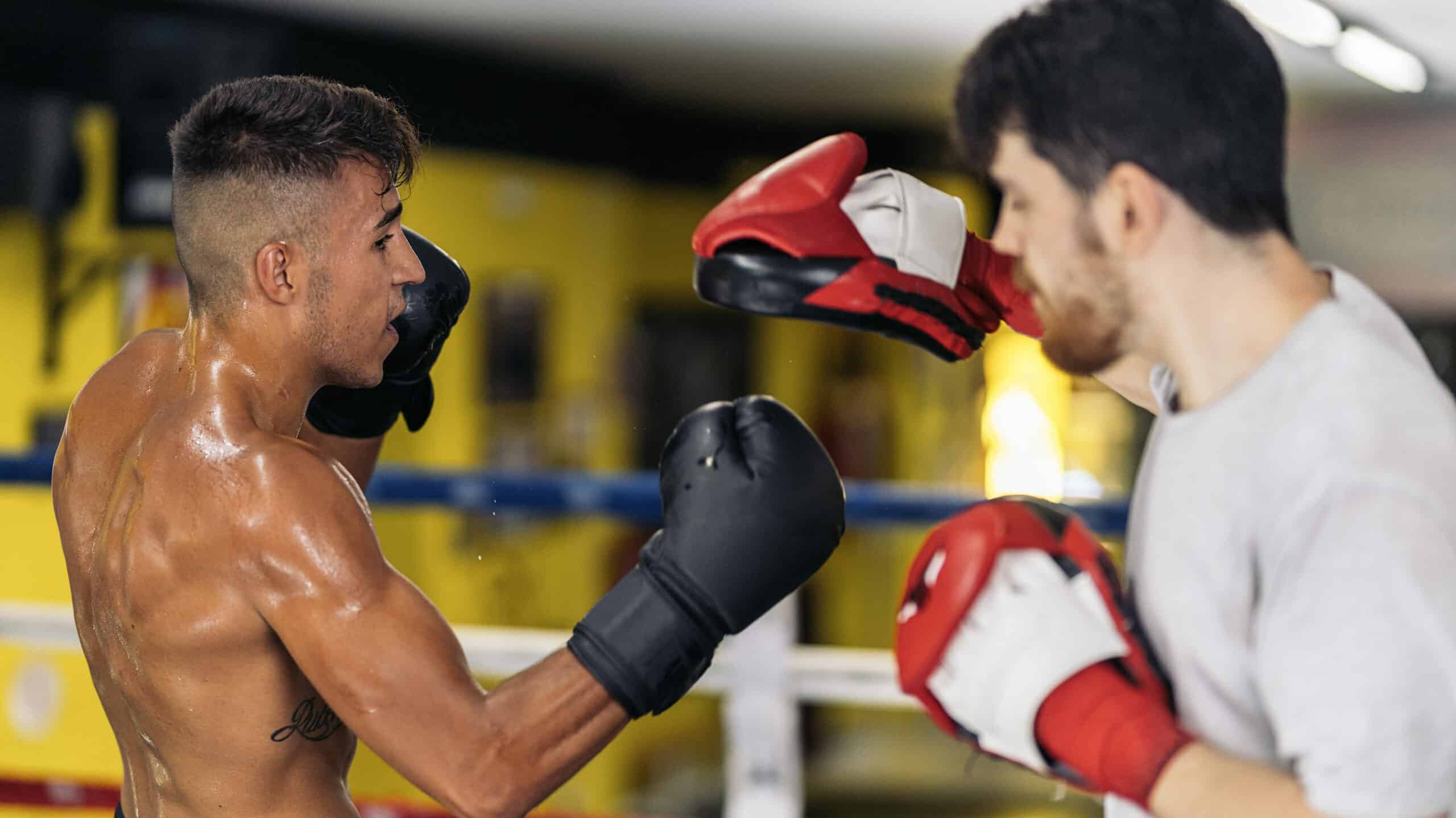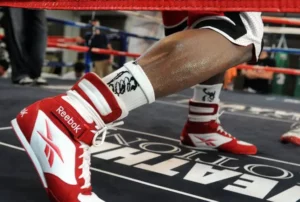Becoming a professional boxer is not a journey for the faint of heart. It requires unwavering dedication, rigorous training, and an unyielding determination to succeed. However, the rewards can be immeasurable for those who have the passion and the drive to pursue this path.
In this article, we will explore the necessary steps to become a professional boxer, from the early stages of amateur boxing to the challenges and opportunities of professional boxing.
The first step in becoming a professional boxer is to start as an amateur. Amateur boxing provides the foundation for a career in professional boxing, offering the opportunity to develop essential skills, such as footwork, defense, and the ability to throw punches with precision and power. Additionally, amateur boxing provides opportunities to compete in tournaments and gain experience in the ring, building confidence and honing skills that will be essential for success in the professional ranks.
From there, aspiring boxers must find a specialized boxing gym and work with a coach to develop a training regimen that will prepare them for the rigors of professional boxing. With hard work and dedication, the path to becoming a professional boxer is within reach, and with the right guidance, the rewards can be extraordinary.
Key Takeaways
- Becoming a professional boxer requires first becoming an amateur boxer and finding a specialized boxing gym with experienced coaches.
- Amateur boxers need to get an amateur license, which requires a basic physical exam and filling out an application.
- Climbing up the ranks as a professional boxer requires fighting hard and finding a good manager to launch and manage your career.
- Dedication and hard work are necessary to improve skills and become a contender at the top level.
Amateur Boxing

To become an amateur boxer, one must first find a gym with experienced coaches and instructors who can provide focused training. This is essential to mastering the fundamentals of boxing, developing technique, and improving physical fitness. Finding the right gym can also help trainees get connected to local boxing communities and events.
Once a gym has been identified, the next step is to obtain an amateur license. This requires undergoing a basic physical exam and filling out an application, along with submitting necessary documents and paying a sign-up fee.
With the guidance of an experienced coach, trainees can quickly get on the list for a bout, which can take the form of either a tournament or a local club fight. Tournaments typically span several days and involve a bracket system in which winners move on to the next round. On the other hand, club fights do not require specific weight classes and are matched between fighters who are closest in weight and experience.
Participation in these events is critical to gaining experience and building a track record, which is essential for advancing professionally.
Professional Boxing

Professional boxing is a strictly regulated and high-profile sport that involves fighting for a purse without the use of protective headgear and typically lasts up to twelve rounds.
To become a professional boxer, finding a specialized boxing gym is necessary. Structured boxing classes are not made for competitive fighters, and a coach with experience in training amateurs is needed. Hard work is required to improve skills and train for matches. Additionally, getting an amateur license is necessary, which involves a basic physical exam and filling out an application, providing necessary documents, and paying a sign-up fee.
Once a boxer has become an amateur, they can begin the journey to become a professional. A good manager is crucial for launching a professional career and managing contracts, and a professional license is necessary, requiring registration with one of four major organizations.
Climbing up the ranks requires fighting a lot and finding a competent manager, and dedication is necessary to become a contender at the top level. Becoming a professional boxer takes hard work and commitment, but the rewards can be great for those who are willing to put in the effort.
How to Get Your Boxing Licence?
Obtaining a boxing license entails several steps that can vary across jurisdictions. Here is a general guideline:
- Research Requirements: Firstly, familiarize yourself with the requirements set by your state’s athletic commission. Most states require a physical exam and application submission. Frequently, you will need to undergo medical tests like EKGs, neurological assessments, and blood tests.
- Submit an Application: Start the process by filling out a Professional Contestant Application Form and paying the non-refundable application fee.
- Undergo a Physical Exam: A physical evaluation, typically involving medical tests such as EKGs, neurological exams, and blood work, is a prerequisite in most states.
- Comply with Drug and Steroid Tests: Be prepared to undergo drug and steroid tests.
- Pay the License Fee: The cost of a license can differ based on your location. For instance, in New York, the fee is $10, whereas in Nevada, it’s $50.
- Fulfill Additional Requirements: Some jurisdictions may have extra conditions. For instance, in Texas, if you aspire to become an official with USA Boxing, you need to register with USA Boxing annually and complete the SafeSport Certification course online.
Remember, the prerequisites for an amateur boxing license may differ from a professional one. Amateur boxers may need a separate license and have to meet distinct criteria. Always check with your local athletic commission for specific information.
Why is a Boxing License Important?
A boxing license is crucial for multiple reasons:
- Regulation and Safety: One of the primary reasons for requiring a boxing license is to ensure the sport is regulated and that boxers are safe. Licensing ensures that boxers have undergone necessary health checks, physical exams, and are physically fit to participate. This helps minimize the risk of serious injuries.
- Standardization: A license also guarantees that participants have received a certain level of training and are aware of the rules and standards of the sport. This helps maintain the quality of matches and competition.
- Legality: Boxing is a physically intense sport with potential health risks. Licensing creates a legal framework to protect not only the boxers but also promoters, trainers, and other participants involved in the sport. It also allows for legal recourse in case of misconduct.
- Drug Prevention: As part of the licensing process, boxers are often required to pass drug and steroid tests. This ensures fairness in competition and promotes the health of the athletes.
- Insurance: In many jurisdictions, having a boxing license may be linked to insurance provisions for the boxer. This can cover medical care needed due to injuries sustained during a match.
So, while a boxing license might seem like an administrative hurdle, it plays a critical role in promoting safety, fairness, and integrity within the sport.
Conclusion
When you aspire to become a boxer, you should know that weight division in tournaments can become unpredictable. Finding a gym with experienced coaches and instructors is important.
In smaller tournaments, it is not uncommon for weight classes to have too few applicants, resulting in a straight-to-finals scenario for very light or heavy-weight classes.
Furthermore, finding a specialized boxing gym with experienced coaches and instructors is crucial to success. Structured boxing classes are not made for competitive fighters, so it is important to find a gym that caters to the needs of aspiring professional boxers.
To launch a professional career, having a good manager is crucial. A good manager will help in launching a professional career and managing contracts.
In addition to this, a professional license is necessary, which requires registration with one of the four major boxing organizations. Climbing up the ranks requires fighting a lot and finding a competent manager to help achieve the goal.
Dedication is necessary to become a contender at the top level.
Frequently Asked Questions
What are the most common injuries that boxers sustain during their career?
Prevalent injuries in boxing include hand and wrist fractures, facial cuts, and concussions. Prevention techniques such as proper technique, protective gear, and regular medical check-ups can minimize risk. Boxers should prioritize injury prevention to prolong their career and maintain their health.
What is the typical pay range for professional boxers, and how does it compare to other professional athletes?
Professional boxers’ pay ranges from thousands to millions, depending on their popularity, sponsors, and career longevity. Boxers may earn less than other athletes, but their income potential increases with successful matches.
What is the process for finding and signing with a reputable boxing manager or promoter?
Finding reputable representation as a professional boxer is crucial for launching a successful career. It involves researching and networking with experienced managers and promoters, negotiating contracts, and building a strong team to support and guide the athlete toward success.
Are there any specific dietary or nutritional requirements that boxers must follow to maintain their physical conditioning?
Boxers require a balanced diet that includes carbohydrates, protein, and healthy fats to maintain their physical conditioning. Adequate hydration is crucial for optimal performance and recovery. Boxers should consult with a nutritionist to meet their nutritional requirements.
What is the process for acquiring sponsors or endorsements as a professional boxer, and how important are these types of deals for a boxer’s overall career success?
Boxing sponsorship deals are crucial for a professional boxer’s overall career success. Marketing strategies involve building a strong personal brand, promoting oneself through social media, and partnering with companies that align with one’s values and image.








